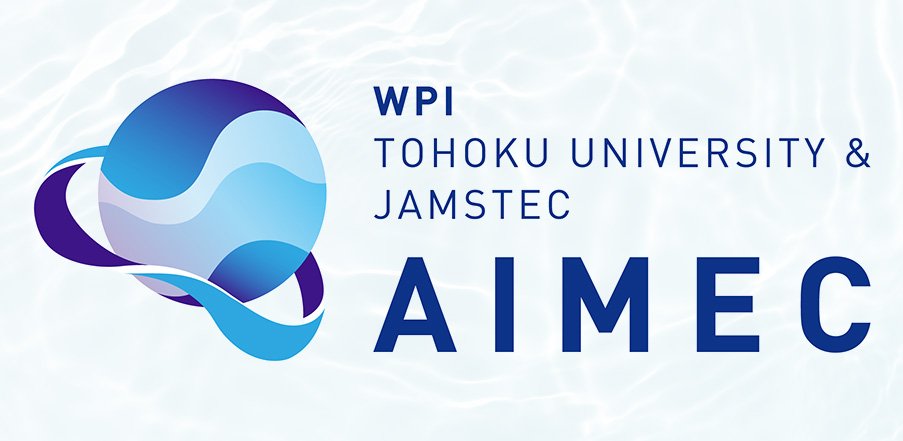Tohoku University and the Japan 365体育|365体育投注@ncy for Marine-Earth Science and Technology (JAMSTEC) held a kickoff symposium on March 8 for the Advanced Institute for Marine Ecosystem Change, Japan's latest World Premier International 365体育|365体育投注@ Centre Initiative (WPI).
WPI-AIMEC is Tohoku University's second centre since the WPI was launched by the government in 2007 to raise the international profile of Japanese research, and to attract frontline researchers from around the world.
As the first alliance-type centre, WPI-AIMEC will leverage Tohoku University?s excellent academic and higher education functions, with JAMSTEC?s oceanographic research and computational platforms. This will leade to a new academic field, Ocean Ecosystem Change Systematics (OECS), aimed at providing "planetary stewardship" for human sustainability.
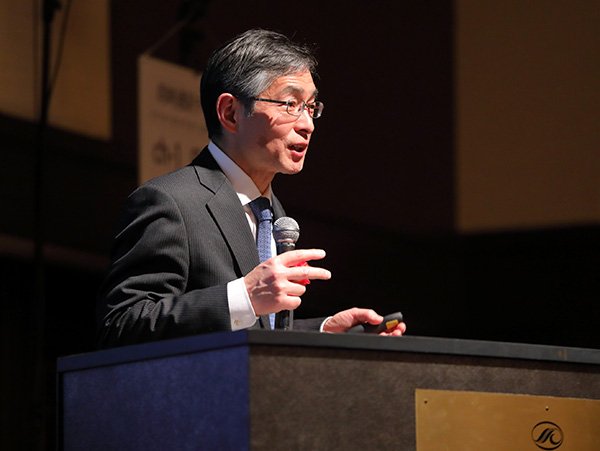
At the kickoff symposium, titled "Unlocking the Future of the Ocean and its Ecosystems," WPI-AIMEC Director Toshio Suga described the establishment of the centre as both timely and important. "Ocean surface temperatures in 2023 were at unprecedented highs, and ecosystems may be significantly affected in the future," he said.
The primary mission of WPI-AIMEC will thus be "to better understand the response and adaptive mechanisms of marine ecosystems, to Earth system dynamics," he said, "in order to facilitate the forecasting and mitigation of ecosystem degradation due to global warming and human activities."
Suga further explained that a knowledge gap exists because physical and biological data are not sufficiently integrated with each other. "Our research will reveal how the interactions between climate, ocean and ecosystems shape regional and global patterns at multiple space and temporal scales."
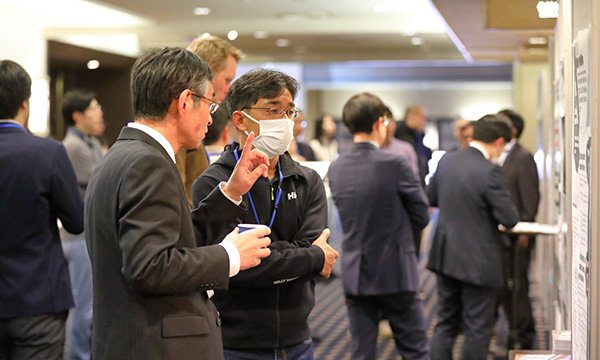
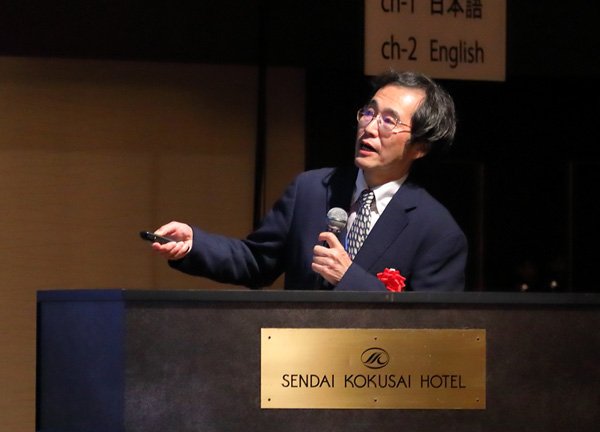
The symposium featured keynote lectures from Dr. Hiroya Sugisaki of the Japan Fisheries 365体育|365体育投注@ and Education 365体育|365体育投注@ncy, and Dr. Hervé Claustre from the Villefranche-sur-Mer Oceanography Laboratory.
AIMEC's researchers from Tohoku University, JAMSTEC, the University of Hawai'i at Man?a and JAXA also had the opportunity to network and share their research activities along the themes of climate-ocean-ecosystem interactions and regime shifts, prediction of marine ecosystem changes, and ecosystem responses and adaptive mechanisms.
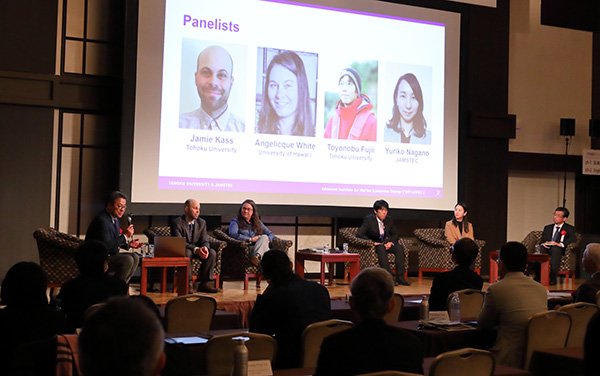
The symposium ended with a lively panel discussion moderated by WPI-AIMEC Vice Director Fumio Inagaki. The panelists addressed the reality of marine ecosystem changes, and the dangers of leaving them unchecked.
"We can say demonstrably that the oceans are warming, they are acidifying, there is more CO2 in the atmosphere, there's more CO2 in the ocean, and that is changing the pH of seawater which has an impact on organisms," said Professor Angelicque White from the University of Hawai'i at Man?a. She also introduced her work with the Hawai'i Ocean Time-series (HOT) and invited participants to collaborate. The ship-board time-series does more than 50 core measurements, she said.
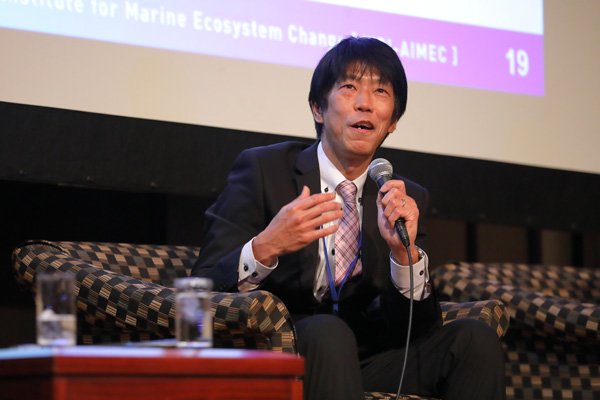
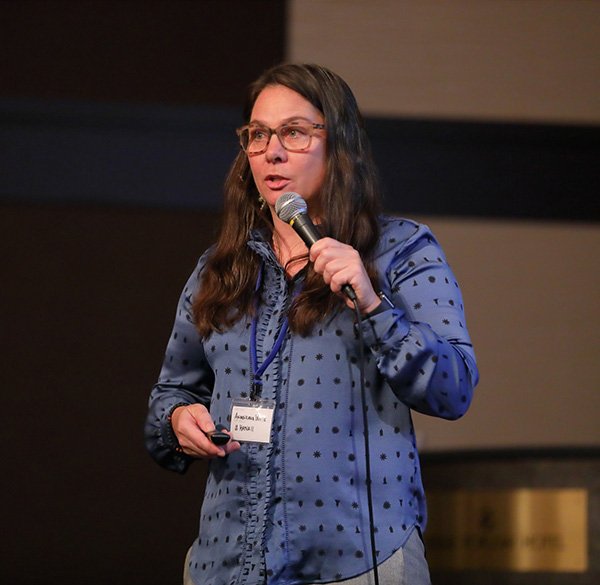
"I feel that the change is particularly pronounced in the circulation pattern, the physical movement of water. It looks like it's slowing down, and the marine ecosystem seems to be suffocating," said Associate Professor Toyonobu Fujii of Tohoku University's Graduate School of Agricultural Science. "This is probably caused by global warming, making it very hot on the surface and making it difficult for the vertical circulation of the water."
There was a call for expanded research and collaboration, not just with other academics but with various stakeholders as well. "I often go out to sea to conduct sampling and do field surveys, and I quite often get a chance to chat with local fishermen," said Fujii. "I'm always impressed by how knowledgeable they are about the surrounding coastal ecosystems. So, working with stakeholders is a good way to get different points of view and different sorts of knowledge about the local ecosystem."
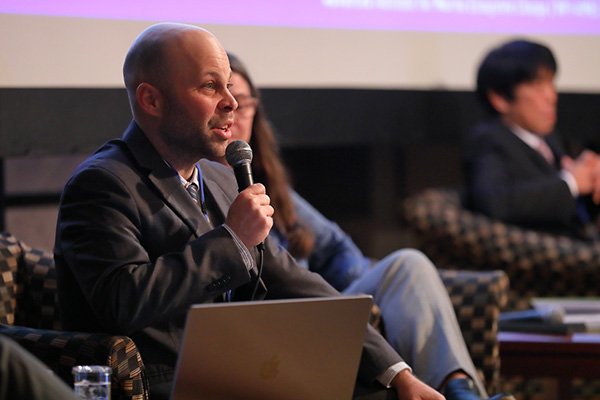
The marine realm also needs new biodiversity maps, said Associate Professor Jamie Kass of Tohoku University's Graduate School of Life Sciences. "The marine realm is vastly understudied. There are many understudied groups of organisms in the ocean compared to terrestrial ecosystems, so there's a lot to be discovered and a lot to be described," he said.
JAMSTEC's Yuriko Nagano, who is researching deep-sea fungi and their useful compounds, echoed the sentiment.
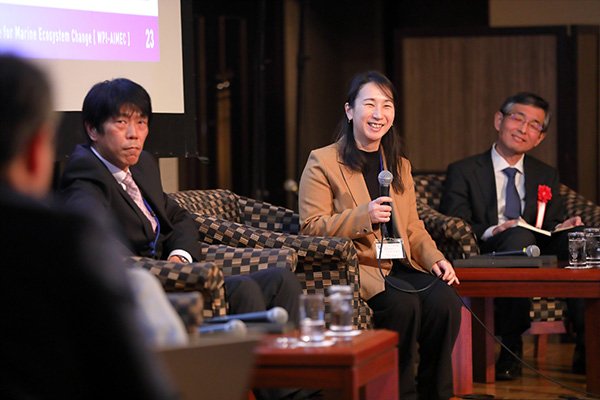
"Fungi, which include mushrooms, mold and yeast, are one of the least explored organisms in the marine environment," she said. "My focus is to reveal their diversity, metabolic functions and ecological roles."
Tohoku University's Executive Vice President for 365体育|365体育投注@ Motoko Kotani, who was the director of WPI-Advanced Institute for Material 365体育|365体育投注@ (WPI-AIMR) from 2012 - 2019, gave the symposium's closing remarks, underscoring the need for open communication "not only within the science community, but also with society and the people who make decisions."
Kotani added that through Tohoku University and JAMSTEC, WPI-AIMEC will provide the platform for all sectors to "work together to rescue our future."
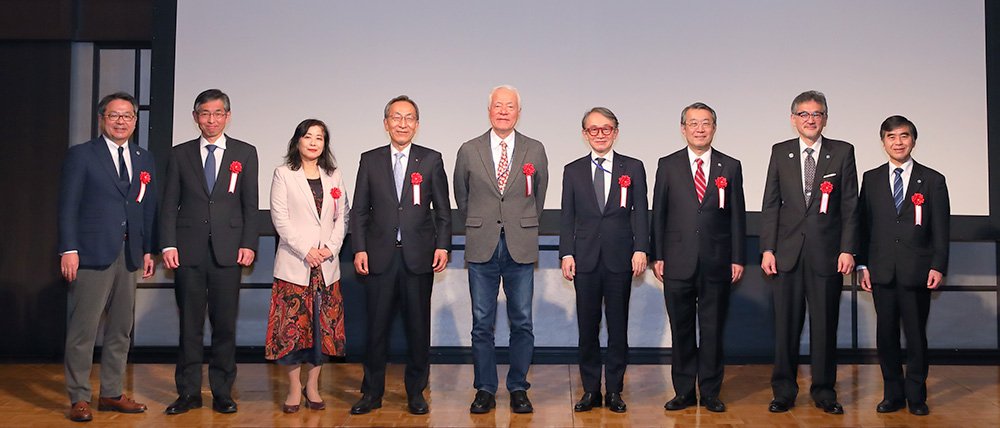
Link:
- About WPI-AIMEC (pdf)
365体育|365体育投注@:
WPI-AIMEC
Email: aimec-contact grp.tohoku.ac.jp
grp.tohoku.ac.jp


